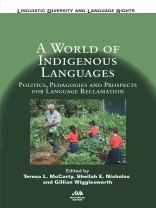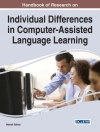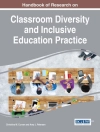Spanning Indigenous settings in Africa, the Americas, Aotearoa/New Zealand, Australia, Central Asia and the Nordic countries, this book examines the multifaceted language reclamation work underway by Indigenous peoples throughout the world. Exploring political, historical, ideological, and pedagogical issues, the book foregrounds the decolonizing aims of contemporary Indigenous language movements inside and outside of schools. Many authors explore language reclamation in their own communities. Together, the authors call for expanded discourses on language planning and policy that embrace Indigenous ways of knowing and forefront grassroots language reclamation efforts as a force for Indigenous sovereignty, social justice, and self-determination. This volume will be of interest to scholars, educators and students in applied linguistics, Ethnic/Indigenous Studies, education, second language acquisition, and comparative-international education, and to a broader audience of language educators, revitalizers and policymakers.
สารบัญ
Introduction. Teresa L. Mc Carty, Sheilah E. Nicholas, and Gillian Wigglesworth: A World of Indigenous Languages—Resurgence, Reclamation, Revitalization, and Resilience
Part I—Policies and Politics in Indigenous Language Reclamation
Chapter 1. Barbra A. Meek: Configuring Language(s) and Speakers: Politics of an Aboriginal Ethnolinguistic Identity in the Yukon, Canada
Chapter 2. Nkonko M. Kamwangamalu: Language Policy in Post-Apartheid South Africa—An Evaluation
Part II—Pedagogies and Processes in Indigenous Language Reclamation
Chapter 3. Cath Rau, Waimātao Murphy, and Pem Bird: The Impact of “Culturalcy” in Ngā Kura ā Iwi Tribal Schools in Aotearoa/NZ: Mō Tātou, Mā Tātou, E Ai Ki a Tātou—For Us, By Us, Our Way
Chapter 4. Serafín M. Coronel-Molina:Media and Technology: Revitalizing Latin American Indigenous Languages in Cyberspace
Chapter 5. Inge Kral and Elizabeth Marrkilyi Ellis: Language Vitality In and Out of School in a Remote Indigenous Australian Context
Chapter 6. Mary Hermes and Kendall A. King:Task-Based Language Learning for Ojibwe: A Case Study of Two Intermediate Adult Language Learners
Chapter 7. Marja-Liisa Olthuis and Ciprian-Virgil Gerstenberger: Strengthening Indigenous Languages through Language Technology: The Case of Aanaar Saami in Finland
Part III—Prospects and Possibilities for Indigenous Language Reclamation
Chapter 8. Sheilah E. Nicholas: Without the Language, How Hopi Are You?: Hopi Cultural and Linguistic Identity Construction in Contemporary Linguistic Ecologies
Chapter 9. Prem Phyak: Transformation from the Bottom Up: Ideological Analysis with Indigenous Youth and Language Policy Justice in Nepal
Chapter 10. Rosalva Mojica Lagunas: Language Key Holders for Mexicano: The Case of an Intergenerational Community in Coatepec de los Costales, Mexico
เกี่ยวกับผู้แต่ง
Sheilah E. Nicholas, Hopisino, is a member of the Hopiit, the Hopi People, who continue to reside on aboriginal lands in the Black Mesa region of now known Arizona. She is a professor in the Department of Teaching, Learning and Sociocultural Studies and the American Indian Language Development Institute (AILDI) at the University of Arizona (UAZ), Tucson. Along with colleagues Dr. Teresa Mc Carty and Dr. Michael Seltzer at UCLA and Dr. Tiffany Lee at UNM, she is the UAZ Co-PI of the Spencer funded national study, “Indigenous-Language Immersion and Native American Student Achievement” which will establish a national database of Indigenous-language immersion (ILI) programs and identify the conditions under which ILI is beneficial as an innovative education practice. This and her research focus on Indigenous/Hopi language maintenance and reclamation, the intersection of language, culture and identity, and Indigenous language teacher education have been published in Journal of Language, Identity & Education, Native Studies Review Journal, and co-edited volume (2019), A World of Indigenous Languages: Politics, Pedagogies, and Prospects for Language Reclamation, Multilingual Matters. She is an instructor consultant for the Indigenous Language Institute (ILI), Santa Fe, NM, an organization that assists tribal communities in their language revitalization/reclamation efforts.












